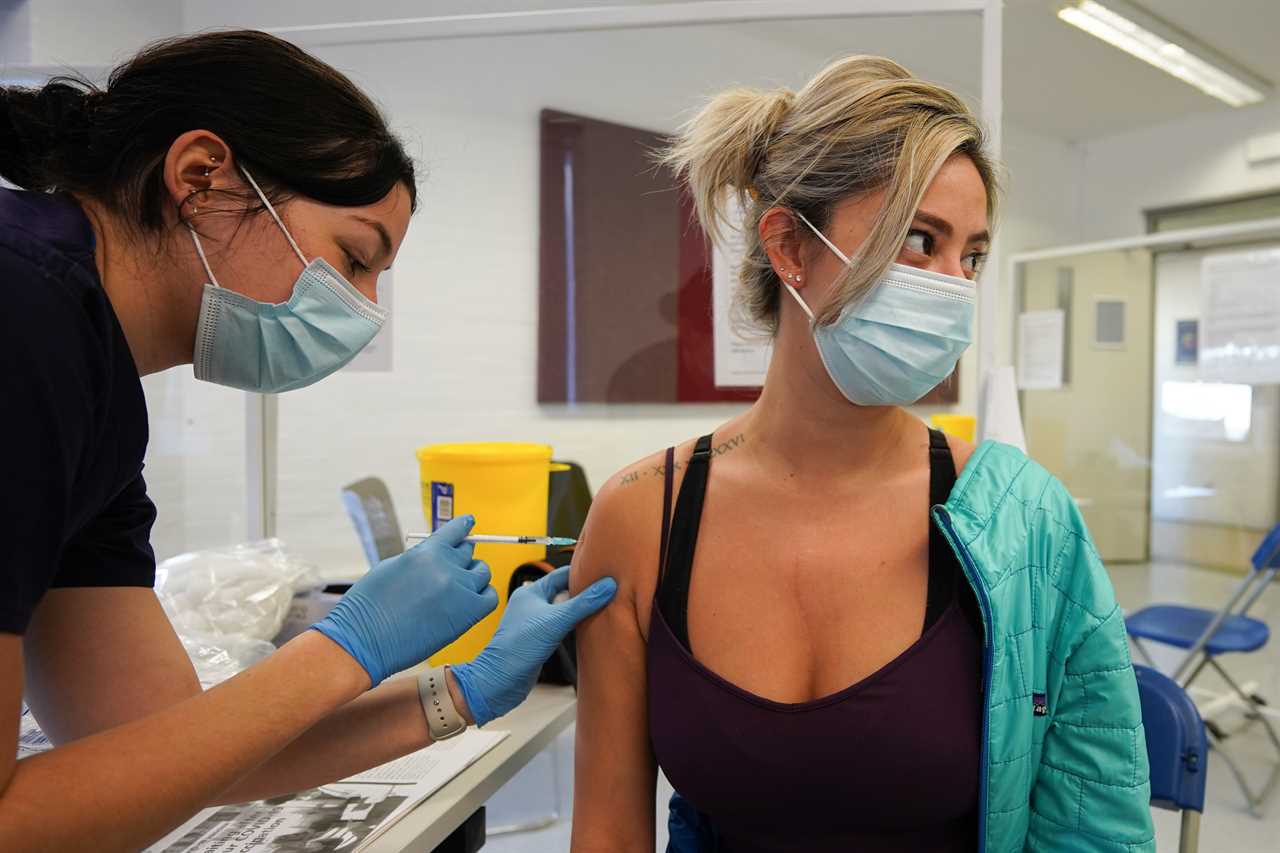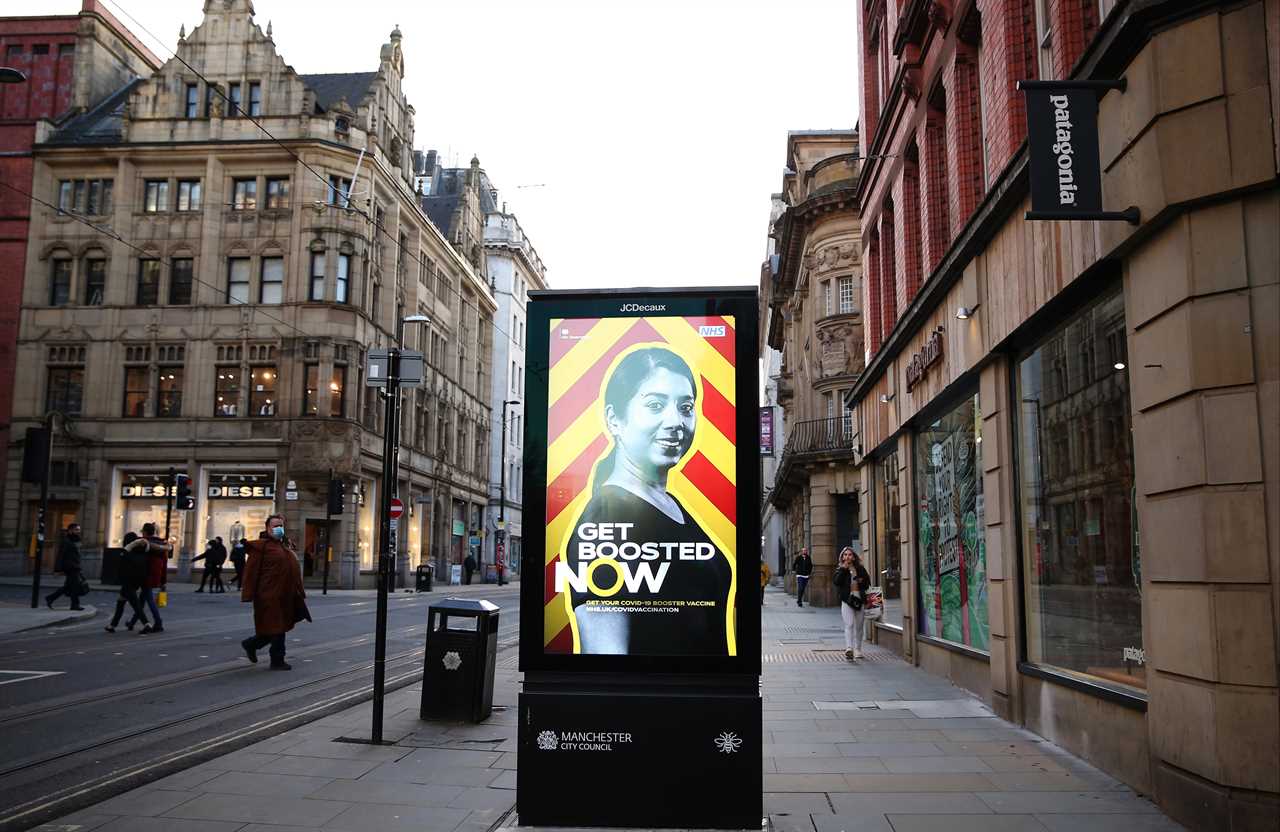UP TO three-quarters of side effects caused by the Covid jab might be “all in the head”, experts say.
A landmark new study from scientists at Harvard reveals millions could be suffering with the ‘Nocebo’ effect.


The phenomenon occurs when someone faces an uncomfortable reaction to a drug – simply because they expected to.
Some of those who have been jabbed have reported effects ranging from headaches to fatigue.
In the new study, researchers drew on reports from 44,000 people – half of whom had actually been given a placebo, or fake vaccine, such as a saline solution, the Daily Mail reports.
Many of those studied said they’d suffered a side effect – but in reality, they were likely linking unrelated issues to the jab.
The scientists looked at side effects reported by the 22,000 people give the vaccine in clinical trials, and compared that to a control group given the fake jab.
In the vaccinated group, approximately 46 per cent suffered adverse effects like a headache or exhaustion after the first vaccine. This rose to 61 per cent of the group after the second jab.
Around a third of participants given the placebo group reported adverse effects such as a headache, with the proportion dropping slightly after the second dose.
It comes as:
- UK Covid cases are down a whopping 21 per cent on last week and the Health Secretary has hinted Plan B restrictions will soon end
- Boris Johnson is facing three possibilities as he aims to ‘substantially reduce’ measures
- Face masks are set to be scrapped in schools very soon, Nadhim Zahawi says
- Experts say the peak of the wave has passed – raising hopes the UK is on its way out of the pandemic
- The Royal Mail has warned of delays in 56 postcodes amid staff shortages caused by Omicron
This allowed the experts to estimate that 76 per cent of all headaches, tiredness and other adverse reactions reported after the first dose weren’t actually caused by the vaccine.
Genuine side-effects rose after a second dose because of the body’s reaction as it fights off the virus.
Professor Ted Kaptchuk, a world-renowned expert on the placebo effect, said: “Nonspecific symptoms like headache and fatigue — which we have shown to be particularly nocebo sensitive — are listed among the most common adverse reactions following Covid vaccination in many information leaflets.
“Evidence suggests that this sort of information may cause people to misattribute common daily background sensations as arising from the vaccine.
“Or [it could] cause anxiety and worry that makes people hyper alert to bodily feelings about adverse events.”
The study was published in the journal JAMA Open Research.
‘NOCEBO EFFECT’
It included jabs made by AstraZeneca, Pfizer and Moderna — all in used in the UK.
It also included the Johnson and Johnson jab, which is being used in the US but not in the UK, as well as vaccines that were still in trials.
Clinical trials always include placebo groups in order to establish whether the trial treatment has any impact.
Headaches and fatigue are known to be common side-effects after getting the jab, affecting one in every 10 people inoculated.
However, serious side effects are extremely rare.
Meanwhile, some reactions reported by those given the jab have never been linked to the medicine. These include ear and eye problems and indigestion.
The success of vaccinations is turning the tide against the pandemic.
Some 208,000 people were catching symptomatic Covid every day at the peak of the Omicron wave in the UK.
But after a huge effort to distribute boosters, that’s dropped to 155,000, the ZOE COVID Symptom Study reports.
A third jab also significantly slashes the risk of falling seriously ill – and Trending In The News’s Jab’s Army campaign is helping get vital boosters in people’s arms.






